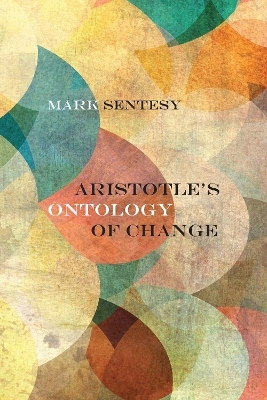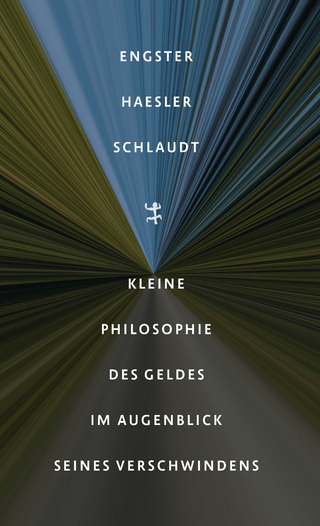
Aristotle's Ontology of Change
Seiten
2020
Northwestern University Press (Verlag)
978-0-8101-4189-6 (ISBN)
Northwestern University Press (Verlag)
978-0-8101-4189-6 (ISBN)
Investigates what change is, according to Aristotle, and how it affects his conception of being. Mark Sentesy argues that change leads Aristotle to develop first-order metaphysical concepts such as matter, potency, actuality, sources of being, and the teleology of emerging things.
This book investigates what change is, according to Aristotle, and how it affects his conception of being. Mark Sentesy argues that change leads Aristotle to develop first-order metaphysical concepts such as matter, potency, actuality, sources of being, and the teleology of emerging things. He shows that Aristotle’s distinctive ontological claim—that being is inescapably diverse in kind—is anchored in his argument for the existence of change.
Aristotle may be the only thinker to have given a noncircular definition of change. When he gave this definition, arguing that change is real was a losing proposition. To show that it exists, he had to rework the way philosophers understood reality. His groundbreaking analysis of change has long been interpreted through a Platonist lens, however, in which being is conceived as unchanging. Offering a comprehensive reexamination of the relationship between change and being in Aristotle, Sentesy makes an important contribution to scholarship on Aristotle, ancient philosophy, the history and philosophy of science, and metaphysics.
This book investigates what change is, according to Aristotle, and how it affects his conception of being. Mark Sentesy argues that change leads Aristotle to develop first-order metaphysical concepts such as matter, potency, actuality, sources of being, and the teleology of emerging things. He shows that Aristotle’s distinctive ontological claim—that being is inescapably diverse in kind—is anchored in his argument for the existence of change.
Aristotle may be the only thinker to have given a noncircular definition of change. When he gave this definition, arguing that change is real was a losing proposition. To show that it exists, he had to rework the way philosophers understood reality. His groundbreaking analysis of change has long been interpreted through a Platonist lens, however, in which being is conceived as unchanging. Offering a comprehensive reexamination of the relationship between change and being in Aristotle, Sentesy makes an important contribution to scholarship on Aristotle, ancient philosophy, the history and philosophy of science, and metaphysics.
Mark Sentesy is an assistant professor of philosophy at Penn State University.
Introduction
1. Change and The Many Senses of Being in Physics I
2. The Demonstration of Change in Physics III.1-2
3. Energeia, Entelecheia, and the Completeness of Change
4. The Being of Potency
5. The Ontology of Epigenesis
6. Genesis and the Internal Structure of Sources in Metaphysics IX.8
Conclusion
Notes
Bibliography
Index
| Erscheinungsdatum | 01.05.2020 |
|---|---|
| Reihe/Serie | Rereading Ancient Philosophy |
| Verlagsort | Evanston |
| Sprache | englisch |
| Maße | 152 x 229 mm |
| Gewicht | 475 g |
| Themenwelt | Geisteswissenschaften ► Philosophie ► Metaphysik / Ontologie |
| Geisteswissenschaften ► Philosophie ► Philosophie Altertum / Antike | |
| ISBN-10 | 0-8101-4189-2 / 0810141892 |
| ISBN-13 | 978-0-8101-4189-6 / 9780810141896 |
| Zustand | Neuware |
| Haben Sie eine Frage zum Produkt? |
Mehr entdecken
aus dem Bereich
aus dem Bereich
Buch | Hardcover (2024)
Matthes & Seitz (Verlag)
28,00 €
Über konstruktivistisches Denken in der Theologie
Buch | Softcover (2024)
Verlag Herder
58,00 €


